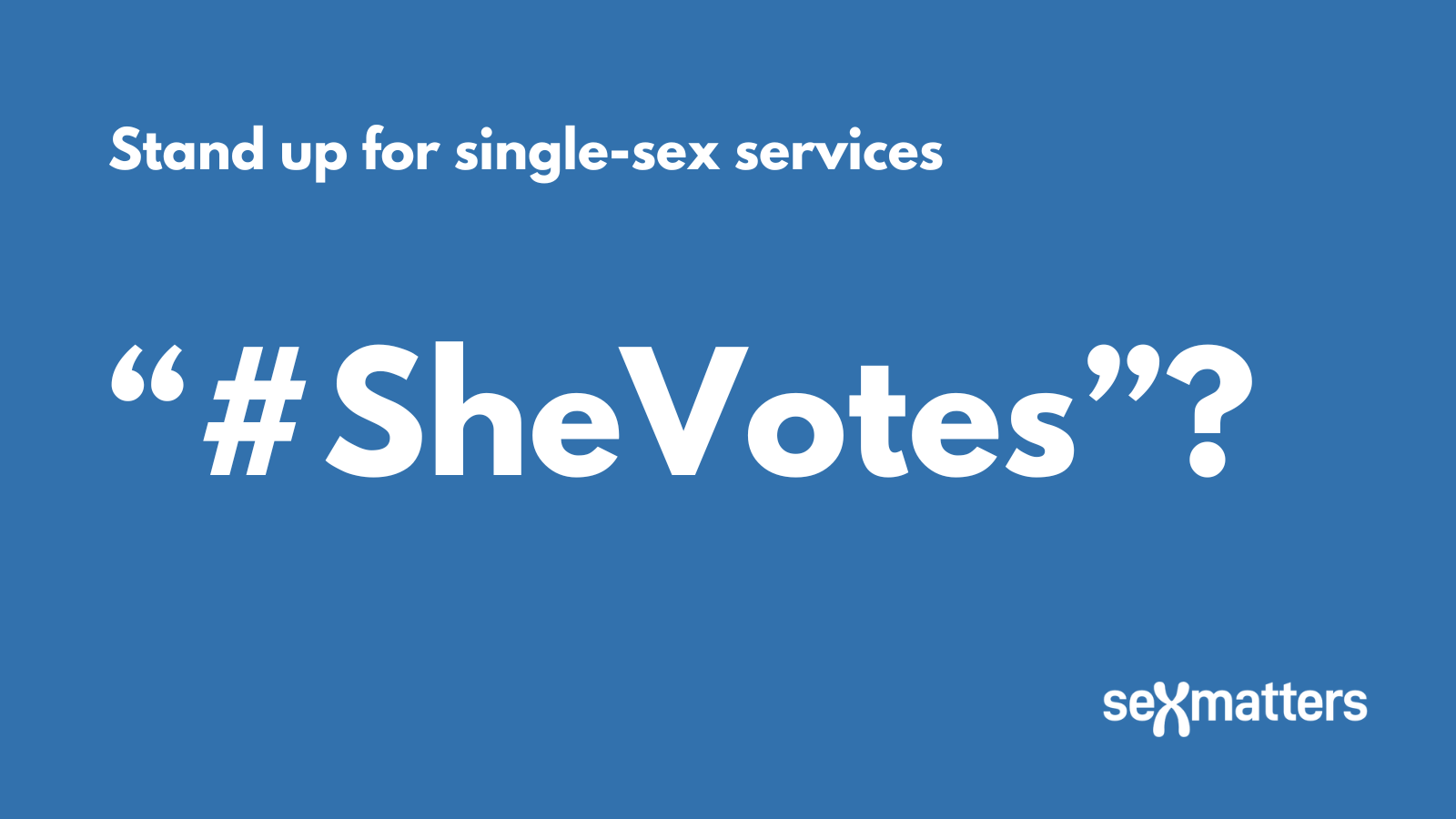This post is part of the Stand up for single-sex services campaign |
SheVotes24 – when will the women’s sector stand up for women?

The Fawcett Society, together with more than 120 women’s organisations, has launched #SheVotes24: an open letter calling on all parties to answer questions to demonstrate their commitment to improving the lives of women and girls in the UK.
Fawcett says that this is the largest ever women’s-sector coalition, with organisations that have 10.5 million women and girls as members, supporters and service users. The organisations that have signed up include Mumsnet, Women’s Aid, the Women’s Institute, Muslim Women’s Network and Disability Rights UK.
But the letter is silent on the erosion of women’s rights and legal protections caused by the conflation of sex and gender identity, and the misogyny unleashed as a consequence.
While women are being called “toxic” for wanting open debate, harassed and discriminated against at work, attacked and threatened when they speak up and intimidated by the police, the organised women’s sector is mainly saying nothing.
Together with Fair Play For Women, the Women’s Rights Network, LGB Alliance, For Women Scotland, the Scottish Feminist Network and Merched Cymru, we call on the Fawcett Society and its co-signatories to find their courage and speak up clearly for women’s rights.
#SheVotes?
The #SheVotes2024 coalition of 120 women’s organisations has published a letter calling for the interests of women and girls to be represented fully at this general election. We wholeheartedly support this. The issues the coalition highlights – childcare, women’s healthcare and violence against women and girls – relate to the reality of women’s lives and female bodies.
Courage calls to courage, and it is now beyond time for the established women’s sector to stand up for women such as JK Rowling, Joanna Cherry, Rosie Duffield and Kathleen Stock, as well as the many less well-known women who have faced misogynistic abuse for speaking up for women’s rights. Women are being pilloried for challenging the profoundly sexist idea that being a woman is a matter of feminine appearance that can be achieved by men through clothing, makeup or cosmetic surgery. Protecting women’s services, and collecting data and making policies that meet women’s needs, requires recognising that sex is real and that women’s rights are for women.
Maya Forstater, CEO, Sex Matters
Nic Williams, Director, Fair Play For Women
Heather Binning, Women’s Rights Network
Kate Barker, CEO, LGB Alliance
Marion Calder, Susan Smith and Trina Budge, For Women Scotland
Marta Smart and Helen Donaldson, Scottish Feminist Network
Kath Murray, Lucy Hunter Blackburn and Lisa Mackenzie, Murray Blackburn Mackenzie
Ali Morris, Executive Committee member, Merched Cymru
